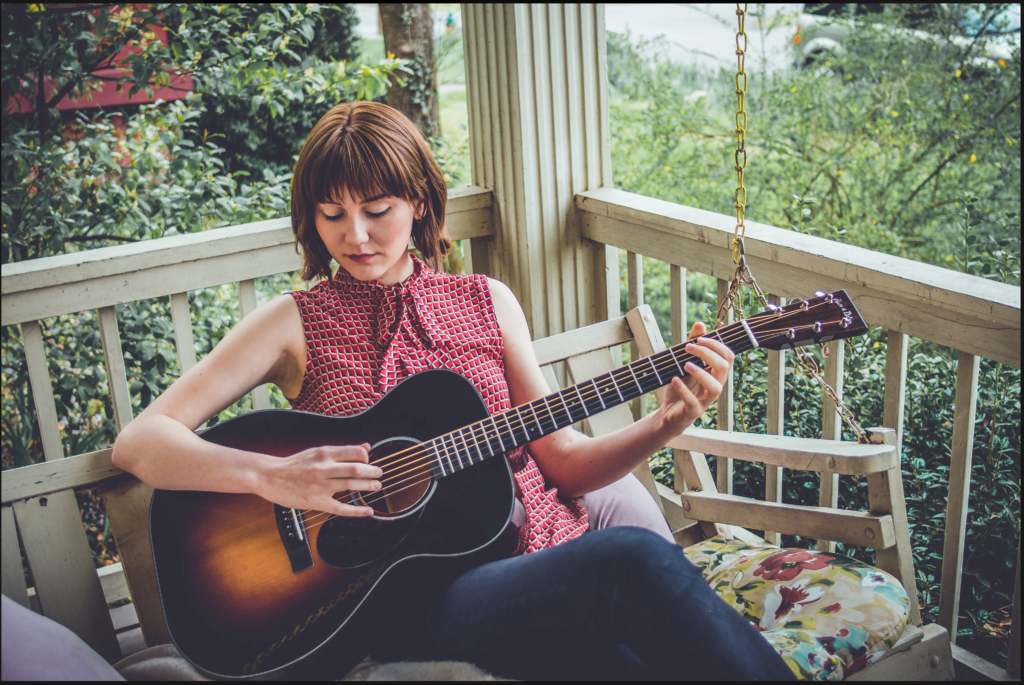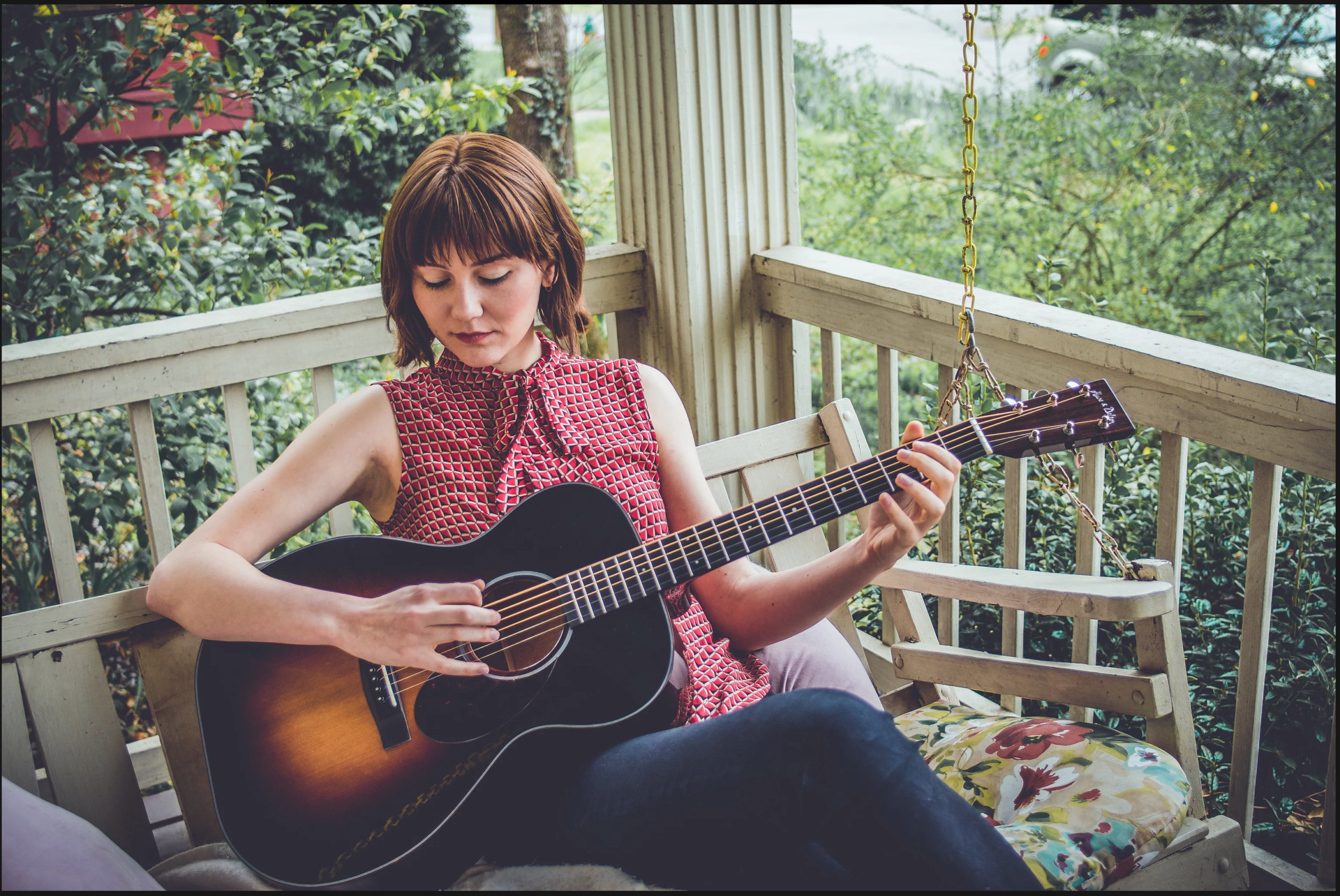Rising Up, Pickin’ the Balance: An Interview with Molly Tuttle
Yesterday we ran a feature telling all you fine folks to head to Passim and check out Molly Tuttle‘s concert in support of her new EP “Rise”. Well, today we have another treat from the virtuoso picker and songwriter.
We caught up with Molly to talk about her new release. Explained as being “written during a period of intense change that found Tuttle moving from California to Boston to Nashville, Rise covers a wide swath of ground, showing the full range of its maker’s abilities.” We tend to agree. The record is as impressive musically as it is heartfelt and honest lyrically.
Check out the interview and be sure to pick this record up today.

RLR: I feel like when an artist is well known in tight circles as an instrumentalist at the head of the class, so to speak, as you are as a guitarist there is a little bit of a stigma. Like there should just be virtuosic bluegrass guitar runs all over every square inch of their record. And, don’t get me wrong, Rise has a lot of that but its much deeper. How important is it to you to strike the balance between deep, introspective songs that bear meaning to you personally with really killer instrumentation and ripping hot solos? Do you find it especially challenging?
MT: I usually put the songwriting first and then as I play it and develop the song the guitar part can find it’s way in. Some of my songs will start from a guitar riff or part that I like, but usually the more intricate guitar work takes a back seat to the song and if the song calls for it then I develop it over time.
RLR: Balance is a way I would try and encompass this record as a whole. There are incredibly charming parts that feel lonesome and blue intertwining with that quick ferocity playing style you have been acclaimed for. Obviously no artist is one sided, there are many layers to peel back in the process of creating music. How important was it for you to really come out swinging with this project and show the full complexity of yourself as a songwriter, instrumentalist and performer?
MT: With this EP I wanted to go in some new directions with the production and instrumentation of the songs. It was very important to me to create something that sounded like my own and to put my stamp on the project. I wanted to showcase the songs I had been working on but I also wanted to make my guitar a feature on the album and stretch myself as an instrumentalist.
RLR: This is your debut solo record, but you’ve been around the block quite a bit performing from a very young age. Why so long to record this collection of songs?
MT: Before recording this album I was learning and growing so much in school at Berklee and involved in many different projects with other bands and configurations. My collection of songs for this album as well as my voice as a solo artist slowly emerged over the years prior to moving to Nashville and going into the studio. I think all the different projects that I have been in over the years really informed my own music so it all lead into making this album.
RLR: Bluegrass music, as somewhat of a standard, has been extremely collaborative in its history. You tapped some pretty excellent talent to lend their voices to this record. Was that an obvious decision for you to make in asking for a little help from your friends to really flesh out the songs?
MT: Yes I feel so privileged to have gotten to work with so many amazing musicians on this project, and I couldn’t have done it without help from others. John Mailander helped me with the arrangements of some of the songs for years playing them together before we finally recorded them so he was an obvious choice for playing on the EP. Kai had worked with a lot of friends and I had admired his music and production for years as well. Wes and I had been playing together for a while too and he is one of my favorite banjo players. All the decisions came pretty naturally.
RLR: ‘Save this Heart’ has a really interesting picking pattern, almost like you are playing clawhammer banjo, but on the guitar with the frailing type right hand style. I feel like lending your skills to experimentation crossing instruments really worked wonderfully in the case of this song. When you are writing a song like this what comes first, that tension filled progression instrumentally, or the lyrics, or both? How do you find those two things influence how you write?
MT: Thank you! I came up with the progression and guitar part first and that really informed the lyrics and the theme of the song because it gave me a mood and feel to work with.
RLR: Similarly, do you have a typical way of writing a song? A book of lyrics that you fit progressions and licks to? Or does the instrumental piece come before and influence the words?
MT: I have written songs from lyrics first or sometimes from a melody or guitar part. Often I will start singing nonsense syllables and lyrics start to take form but I also have a notebook that I continually write down ideas in.
RLR: Another tradition in the realm of bluegrass are these instrumental tunes. Fiddle tunes or reels or whatever you wish to call them. You have included one here with “Super Moon” and I am always curious how much a song title impacts the song. Where did that arrangement come from? Is there a story behind it you can share and do you find it can be difficult to really portray a story or a certain emotion without using words?
MT: I started writing the tune in Sweden. There is no particular story to the name except that I came up with it when there was a super moon. I find naming tunes to be really difficult because not every tune portrays a certain visual or story. With this one I wanted to keep the tune really playful and I think the name goes along with that in a way.
RLR: “Walden” has this gorgeous kind of hollow feeling. I feel like there is a delay effect, but also feel like it could have been accomplished from intricately layering of the different strings. How did you accomplish that sound in studio? It echoes the story really beautifully. Where did that song come from?
MT: We came up with the intro which was played on fiddle and banjo by mistake- they were originally playing that line in unison but they started playing it at slightly different times by accident and it sounded like delay. Luckily we were recording when they did that and so we were able to go back and listen to what happened!
RLR: So, whats next?
MT: Lots of touring and writing a new batch of songs! Playing Grey Fox and Red Wing Roots this weekend which I am stoked for!
photo credit : Kaitlyn Raitz

